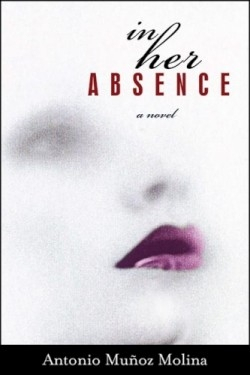It looks like you've stumbled upon a page meant to be read by our code instead of viewed directly. You're probably looking for this page.
In Her Absence
At its best (Gabriel Garcia Marquez, Salman Rushdie, Angela Carter), magical realism lures in its readers, making the impossible seem merely improbable. Antonio Muñoz Molina’s novella, In Her Absence, is a supreme example of this technique. The mystery of the story—whether Mario’s wife, Blanca, has been replaced by someone identical—seems far-fetched and simultaneously believable. No, his real wife would never paint her toenails, and no, she would never watch soap operas. Flimsy evidence becomes convincing when placed in the thoughts of Mario, the most diligent—if not downright obsessive—husband imaginable.
In Her Absence is an untraditional love story not only because one of the lovers seems to have been replaced by a clone. Despite several years of marriage, Mario woos Blanca with the care of a newly infatuated man. He chews quietly, listens to music he doesn’t like, rushes home from work. Before Blanca’s possible disappearance, he was smug because “he alone had the privilege of desiring beyond all other women the precise woman he had married, and the absolute certainty that when he opened the door of his house, he would find her there.” Of course, this certainty is demolished when he comes home to find Blanca and her suitcase missing. And when someone identical to Blanca comes in several hours later, Mario’s blind love has been replaced by suspicion.
There is a subtlety to Molina’s writing that allows multiple themes to weave in and out without seeming heavy-handed. In Her Absence hints at being a warning against marrying above oneself. Blanca is part of the artistic set, a group that looks down on non-artists in general and bureaucrats particularly. However, Mario, something of a bureaucrat himself, at times looks down on Blanca’s interest in trendy artists. When his rival Onésimo enters the story and Blanca fawns over him, Mario thinks, “If you loved me, I’d make sure you never lost your self-respect.” Indeed, perhaps it is Blanca’s distance, not Mario’s, from the intelligentsia that is the real misfortune. And although Mario misses his fastidious wife, the new one who kisses passionately and smokes a cigarette before washing the dishes, is in many ways an improvement.
Molina’s talent for subtlety has had time to develop. The author of thirteen books, Molina is ranked among the most important living writers in Spain. For this novella, he is matched by his translator, Esther Allen, who has translated Javier Marías and Jorge Luis Borges among others. This team brought to life a mystery that is perhaps best left unsolved. It is the absence of answers as much as the absence of the real Blanca that creates such an innovative story.
Reviewed by
Erica Wright
Disclosure: This article is not an endorsement, but a review. The publisher of this book provided free copies of the book to have their book reviewed by a professional reviewer. No fee was paid by the publisher for this review. Foreword Reviews only recommends books that we love. Foreword Magazine, Inc. is disclosing this in accordance with the Federal Trade Commission’s 16 CFR, Part 255.
